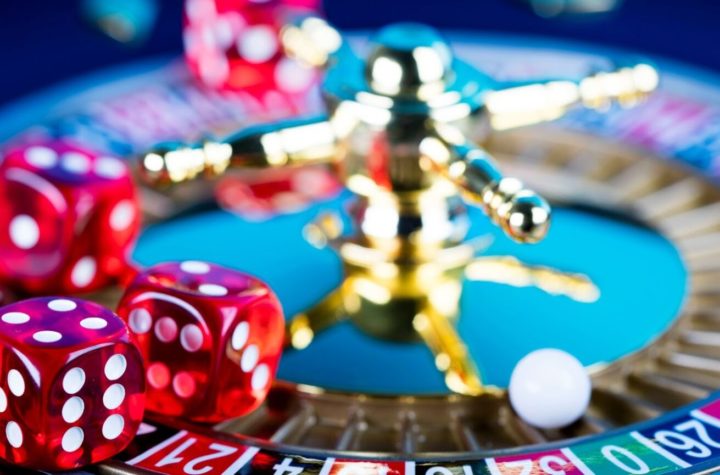
Uma dieta mediterrânea verde pode retardar o envelhecimento do cérebro, de acordo com um estudo da Universidade Ben Gurion. Os pesquisadores descobriram que uma redução de 1% no peso corporal pode fazer o cérebro parecer cerca de 9 meses mais jovem em um período de 18 meses. Esta descoberta oferece um método potencial para retardar o envelhecimento cerebral causado pela obesidade e uma estratégia para avaliar o impacto das mudanças no estilo de vida na saúde do cérebro.
Novas descobertas de um teste de dieta de longo prazo mostram um efeito positivo na saúde do cérebro.
Mudar para uma dieta mediterrânea verde afeta positivamente a saúde do cérebro, de acordo com uma nova pesquisa da Universidade Ben-Gurion do Negev. A perda de peso melhorou o envelhecimento cerebral em um subestudo do estudo DIRECT-PLUS.
O DIRECT PLUS foi um ensaio clínico de larga escala e longo prazo de 18 meses entre 300 participantes.
O subestudo foi conduzido pela professora Galia Avidan, do Departamento de Psicologia, e pelo Dr. Gideon Levakov, ex-aluno de pós-graduação do Departamento de Ciências Cognitivas e do Cérebro.
Suas descobertas foram publicadas recentemente no Scientific Journal eLife.

Professor Galya Avidan. Crédito: Danny Machlis/BGU
O estudo maior foi liderado pelo professor Iris Shay, da Universidade Ben-Gurion do Negev, professor assistente da Escola de Saúde Pública de Harvard e professor emérito da Universidade de Leipzig, Alemanha, junto com o ex-aluno Dr. Alon. Kaplan e colegas das Universidades de Harvard e Leipzig.

Dr.. Gideon Levakov. Crédito: BGU
A obesidade está associada a um envelhecimento cerebral mais rápido do que seria normalmente esperado. Os pesquisadores podem capturar esse processo calculando a “idade do cérebro” de uma pessoa – quantos anos seu cérebro aparece em varreduras detalhadas, independentemente da idade cronológica. Essa abordagem também ajuda a investigar como certos fatores, como estilo de vida, afetam o envelhecimento do cérebro em períodos de tempo relativamente curtos.
Levakov, Kaplan, Shay e Avidan estudaram 102 indivíduos que preenchiam critérios para obesidade. Os participantes receberam uma varredura cerebral no início e no final do programa; Mais testes e medições também foram realizados nesses momentos para capturar outros processos biológicos afetados pela obesidade, como a saúde do fígado.
Eles usaram varreduras cerebrais feitas no início e no final do estudo para examinar o efeito de uma intervenção no estilo de vida no curso do envelhecimento. Os resultados revelaram que uma redução de 1% no peso corporal resultou na vida cerebral dos participantes sendo cerca de 9 meses mais jovem do que a vida cerebral esperada após 18 meses. Esse envelhecimento prejudicado tem sido associado a alterações em outras medidas biológicas, como diminuição da gordura hepática e das enzimas hepáticas. O aumento da gordura hepática e a produção de certas enzimas hepáticas já demonstraram afetar negativamente a saúde do cérebro em[{” attribute=””>Alzheimer’s disease.

Credit: BGU
“Our study highlights the importance of a healthy lifestyle, including lower consumption of processed food, sweets, and beverages, in maintaining brain health,” says Dr. Levakov.

Prof. Iris Shai. Credit: Dani Machlis/BGU
“We were encouraged to find that even a weight loss of 1% was sufficient to affect brain health and lead to a 9-month reduction in brain age,” says Prof. Avidan.
The findings show that lifestyle interventions that promote weight loss can have a beneficial impact on the aging trajectory of the brain seen with obesity. The next steps will include figuring out whether slowing down obesity-driven brain aging results in better clinical outcomes for patients. In addition, the study shows a potential strategy to evaluate the success of lifestyle changes on brain health. With global rates of obesity rising, identifying interventions that have a positive impact on brain health could have important clinical, educational, and social impacts.
The DIRECT-PLUS trial research team was the first to introduce the concept of the green-Mediterranean, high polyphenols diet. This modified Mediterranean diet is distinct from the traditional Mediterranean diet because of its more abundant dietary polyphenols (phytochemicals, secondary metabolites of plant compounds that offer various health benefits) and lower red/processed meat. On top of a daily intake of walnuts (28 grams), the green-Mediterranean dieters consumed 3-4 cups of green tea and 1 cup of Wolffia-globosa (Mankai) plant green shake of duckweed per day over 18 months. The aquatic green plant Mankai is high in bioavailable iron, B12, 200 kinds of polyphenols and protein, and is therefore a good substitute for meat.

Dr. Alon Kaplan. Credit: BGU
Reference: “The effect of weight loss following 18 months of lifestyle intervention on brain age assessed with resting-state functional connectivity” by Gidon Levakov, Alon Kaplan, Anat Yaskolka Meir, Ehud Rinott, Gal Tsaban, Hila Zelicha, Matthias Blüher, Uta Ceglarek, Michael Stumvoll, Ilan Shelef, Galia Avidan and Iris Shai, 6 April 2023, eLife.
DOI: 10.7554/eLife.83604
Additional researchers included: Anat Yaskolka Meir, Ehud Rinott, Gal Tsaban, Hila Zelicha, and Prof. Ilan Shelef of BGU, as well as Matthias Blüher, Uta Ceglarek, Michael Stumvoll of the University of Leipzig.
This work was funded by grants from the Deutsche Forschungsgemeinschaft (DFG, German Research Foundation) – Project number 209933838- SFB 1052; the Rosetrees Trust (grant A2623); Israel Ministry of Health grant 87472511; Israel Ministry of Science and Technology grant 3-13604; and the California Walnuts Commission.
None of the funding providers took part in any stage of the design, conduct, or analysis of the study, and they had no access to the study results before publication.

“Criador. Viciado em mídia social que gosta de hipster. Fã da web. Fanático por álcool apaixonado.”











More Stories
A Boeing pode não conseguir operar o veículo Starliner antes que a estação espacial seja destruída
Vivendo com ansiedade: conselhos de especialistas sobre como aceitar um problema de saúde mental
Nova pesquisa sobre uma enorme falha de impulso sugere que o próximo grande terremoto pode ser iminente